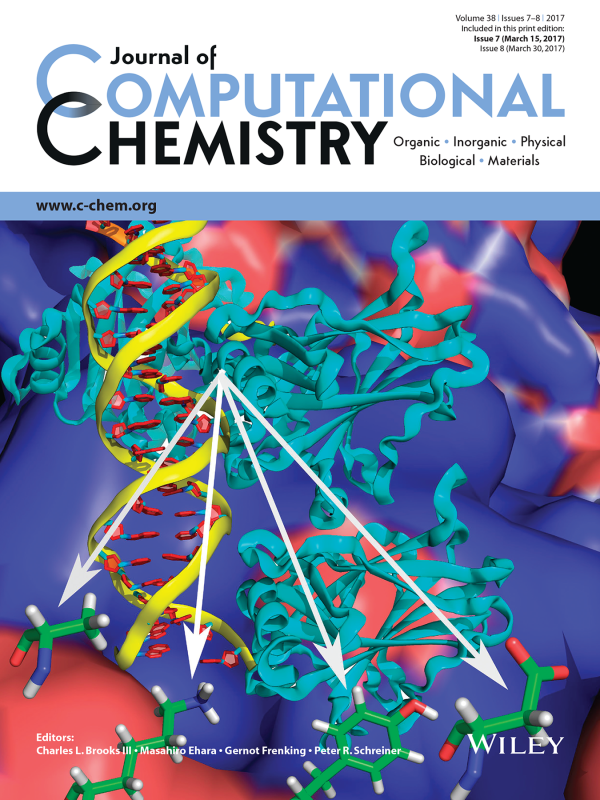


The tumor suppressor protein p53 is a small transcription factor (393 amino acid) that binds to specific DNA sequences and regulates the expression of genes involved in DNA repair, cell cycle arrest, and apoptotic cell death. Mutations in this protein have been shown to result in a partial or total loss of its ability to bind DNA and correlated with increased probabilities of developing tumors. On the Volume 38, Issue 7 of the Journal of Computational Chemistry, we employ MutantElec to characterize the structural effects that point mutations have on p53 function and cancer development.
Read more at: http://onlinelibrary.wiley.com/doi/10.1002/jcc.24712/abstract
Read more at: http://onlinelibrary.wiley.com/doi/10.1002/jcc.24712/abstract